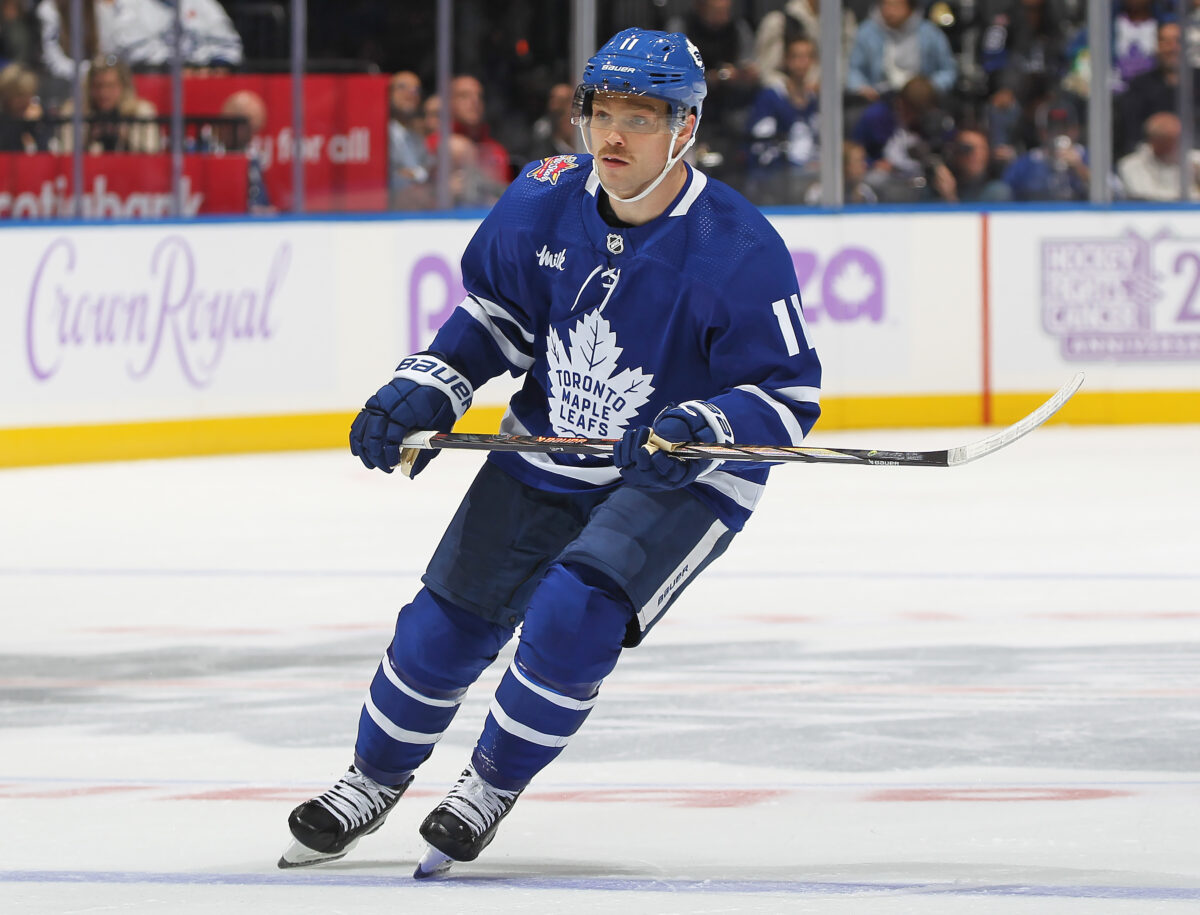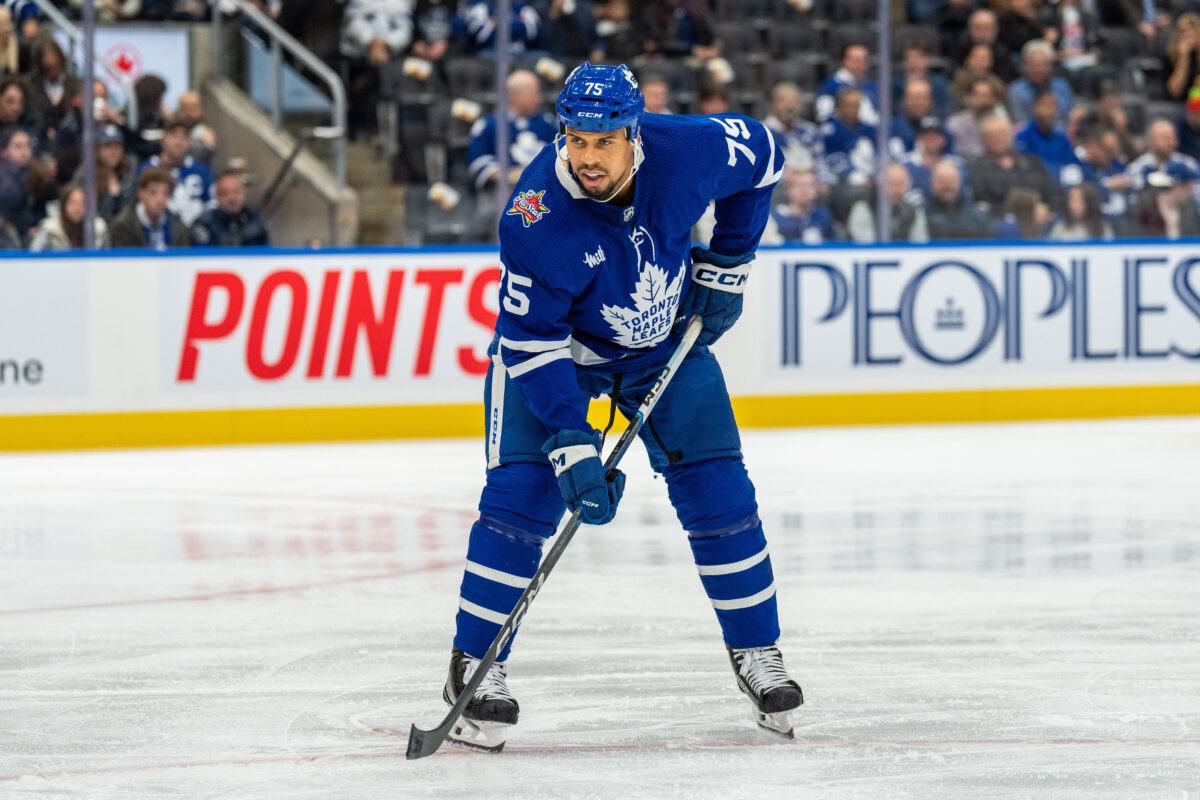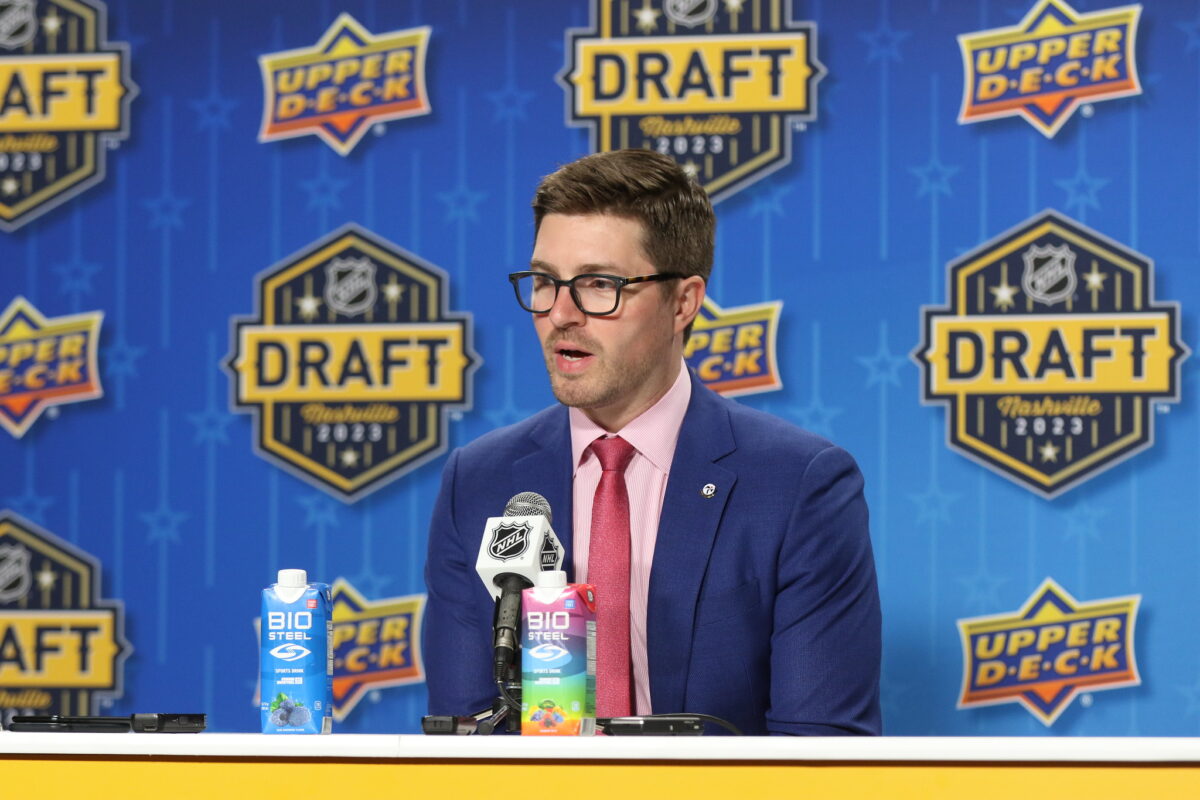The Toronto Maple Leafs made some noise in early July when they signed sought-after free agents like Tyler Bertuzzi and Max Domi. Most sportsbooks had them as a top two favourite to win the Stanley Cup in 2023-24. But here we sit just over a month away from the trade deadline, and despite the shiny new toys they added this summer, the Maple Leafs have rarely resembled a serious contender. There has been chatter among hockey insiders like Elliotte Freidman and Chris Johnston that the organization might be shifting plans to be more conservative on the trade market. They aren’t confident they can compete for a Cup this season.

How have the odds on favourites to win the Stanley Cup coming into 2023-24 had such an inconsistent season? The answer is simple: They went after the flashiest free agents without addressing their most significant needs. It’s a trap that Leafs management has fallen victim to for quite some time now. If they ever want to get over the hump, they need to change their philosophy on how they construct their roster.
Maple Leafs Went All-in on Offense
In 2022-23, the Leafs were ranked in the top five in the NHL in 5-on-5 scoring chances, high-danger chances, and expected goals. Some secondary scoring to replace Michael Bunting, who left in free agency, was in order, but it was far from their biggest concern. On the flipside, they ranked 22nd in expected goals against, 13th in scoring chances against, and 15th in high-danger chances against. Mediocre defensive metrics, to say the least. A career year from Ilya Samsonov helped compensate for some of the Leafs’ deficiencies, but that wasn’t something they could count on to happen again. They needed to bolster their defence.
Related: John Tavares’ Struggles a Big Factor in Maple Leafs’ Second Half
GM Kyle Dubas parted ways with the Leafs in the offseason, and former Calgary Flames GM Brad Treliving was brought in as his replacement. In his first free-agent frenzy with the Maple Leafs, Treliving signed Domi and Bertuzzi, two forwards with substantial offensive upside. Then he signed Ryan Reaves, a player plucked straight out of the early 2000s with all the toughness in the world but minimal positive impact in making plays.
Ryan O’Reilly, Noel Acciari, and Alex Kerfoot, three defensive forwards, all left Toronto in free agency. The team swapped out three defensive specialists for two offensive ones and an enforcer. Don’t get me wrong, Domi and Bertuzzi are good at their jobs, but the Leafs couldn’t afford to make these types of additions without also adding more defensive-minded players to replace what was lost.

Instead, they signed John Klingberg. Klingberg was another big-name free agent and a former All-Star with the Dallas Stars. Unfortunately for the Leafs, he had already proven to be past his best-before date for a couple of seasons. His tenure in Anaheim saw him produce some of the worst defensive results in the entire league. The net result: the Leafs added four players who aren’t particularly strong defensively, while several responsible defenders left in free agency.
Treliving made the mistake of bringing in players who looked good on paper but weren’t the ideal stylistic fit. As a result, the Leafs have been unable to defend well enough to be a top contender.
Kyle Dubas Made Similar Errors With the Leafs
When Dubas took over as GM of the Maple Leafs, he had a fantastic young core to build around. Unfortunately, he made a few critical errors that prevented the team from reaching the next step. They were the same errors that Treliving is making now.
On July 1, 2018, Dubas signed John Tavares to a mammoth seven-year contract worth $77 million. While there is no question Tavares was one of the best centremen in the NHL, the Leafs were in no need of help down the middle. They had a young number-one centre in Auston Matthews, Nazem Kadri, Tyler Bozak, and Patrick Marleau. In 2017-18, the Leafs were ranked third in the NHL in goals-for but 10th in goals against. In hindsight, signing a centre for $11 million when Matthews was already succeeding in that role was a mistake.

They could have added immense value to their defence core and some substantial depth additions with that money. Fast forward to the present; we are now in the final two years of the Tavares contract. The Leafs are still in desperate need of more depth and stronger defence. From a roster construction perspective, the Tavares contract backfired and has had long-term ramifications.
One consequence is that it pushed Kadri out of Toronto; Dubas traded him to the Colorado Avalanche for Tyson Barrie. It seemed like another good move for the Leafs on paper, but Barrie, who had made a name for himself due to his offensive prowess, failed to produce in Toronto and only lasted one season with the Leafs before leaving in free agency.
The Leafs Must Change Their Philosophy
In the mid-2010s, the Leafs did an excellent job drafting and developing offensive talent. William Nylander, Mitch Marner, Morgan Reilly, and Matthews were homegrown. For some reason, Leafs management has never been content with this core. They have always tried to add the biggest offensive names available, whether Tavares, Bertuzzi, or Barrie.
Ironically, some of their most successful moves over the past decade were under-the-radar acquisitions like Brodie and Bunting. With the extension of William Nylander to a long-term contract, the Leafs now have their core four under team control for another season. The best way for them to capitalize during their window to win will be by putting in the work and making smart moves utilizing their scouting and analytics departments. They must resist the allure of the flashy offensive free agents and address their real problems once and for all.
